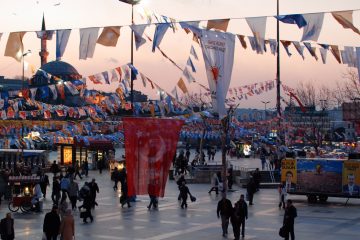
Turkey’s Election: “It’s the Economy, Saftirik”
The lights shine, the cameras zoom, and the serious intro music fades. “Let’s talk about the hottest topic: the economy,” says the CNN Türk news program host. On the left are three journalists from mainstream Turkish news outlets, on the right is Muharrem İnce, the presidential candidate of CHP, the center-left party and opposition candidate with the best shot at unseating president Recep Tayyip Erdoğan. The stone-faced journalist from Hürriyet asks the first question: “It is said that speculators, FETÖ (the term for the followers of accused coup plotter Fethullah Gülen), and economic masterminds are working together and have hurt the capacity of the AKP to help the economy. It’s an economic coup, they say. What do you say?” İnce doesn’t take the …

Social democracy must radicalise to survive
Social democracy seems perpetually at a crossroads. But today, more than a hundred years after the first of the parties affiliated to the Second International won a plurality in a parliamentary election (in Finland in 1907; Anderson, 1992, 307), social democrats may finally be running out of rope. All the main European social democratic parties are facing a crisis, registering at long last endlessly postponed questions about their fundamental purpose.
The Rise of the Failed Middle Income State
Last week, Foreign Policy and the Fund for Peace released their annual ranking of the world’s failed states. The list is based on indicators of 12 different measures of state failure, ranging across social, economic, political, and military factors. This year 34 countries fall into the “Alert” category, denoting those in the worst shape. Somalia and DRC lead the way; the bottom five countries are all in sub-Saharan Africa. What I think is most interesting about this year’s list is the fact that 12 of the “Alert” states – over a third – are middle-income countries. This is a new high, and indeed the emergence of failed middle income states is a relatively new phenomenon; back in 2006 there were only …









